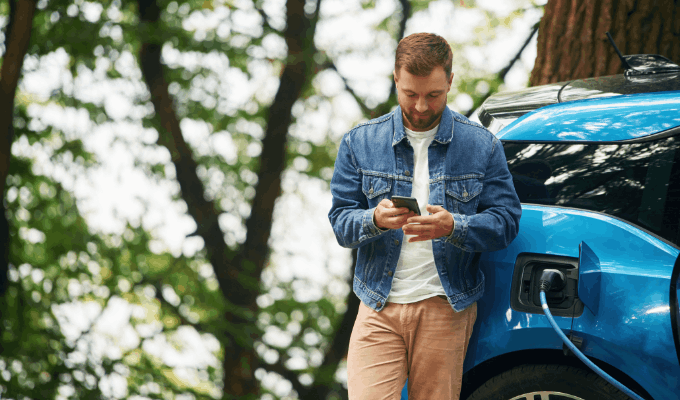The Basics of EV Charging: What Every Driver Should Know

For newcomers, charging an electric car can feel like a very different world compared with simply filling a tank. There’s new terminology, new routines, and a bit of planning involved. But once you understand the basics, it quickly becomes second nature.
How Charging Works
At its simplest, charging an EV is just plugging in, electricity flows from the grid into the car’s battery, much like charging a phone or laptop. How fast and how much you pay depends on where and how you charge.
Home Charging
Most Irish EV drivers charge at home, and this remains the most convenient and cheapest option. A standard domestic wallbox runs at 7.4 kW, adding about 40 - 50 km of range per hour, which is usually enough to fully charge overnight. Charging directly from a three-pin socket is possible but slow and not recommended long-term.
With electricity prices, the savings come down to your tariff. On typical night-rate plans, charging costs about 12 - 15 cent per kWh, meaning a car like a Hyundai Kona Electric with a 65 kWh battery can be charged from empty for around €8 - €10, giving up to 480 km of range. Smart chargers such as the MyEnergi Zappi can even prioritise solar energy, diverting surplus power from rooftop panels into your car for effectively free driving.
Public Charging
Public charging is split between slower AC posts and faster DC rapid chargers. AC posts, found at car parks and supermarkets, often supply 11- 22 kW, but most cars only draw 7–11 kW, adding 50 - 70 km of range per hour. DC fast chargers, typically located on motorways, deliver much quicker top-ups. ESB’s network now offers 50 kW, 150 kW and 200 kW units, while IONITY and Tesla Superchargers provide up to 350 kW for compatible cars. In practice, the charging speed depends on your car’s maximum capacity – for example, a Kia EV6 can take up to 233 kW, meaning a 10–80% charge in under 20 minutes.
Cost of Charging
Free charging points are now rare, though some hotels and workplaces still provide them. ESB currently charges around 56c per kWh on standard DC chargers and 73c per kWh on high-power chargers, while AC typically sits at 46c per kWh. EasyGo and IONITY pricing varies, but both are generally more expensive than home charging. To put it in context, charging a Hyundai Kona Electric on a motorway fast charger could cost €30 - €35, compared with €9 - €10 at home.
The Future of Charging
Charging technology continues to evolve rapidly. Ultra-rapid 400 kW chargers are beginning to appear, wireless charging pads are being trialled for buses and taxis, and vehicle-to-grid (V2G) technology is set to transform how we use EV batteries. Soon, your car could not only power your home during peak hours but also sell electricity back to the grid.
Nevo Summary
While charging an EV takes a little adjustment compared to filling with fuel, most Irish drivers quickly adapt. Home charging remains the cheapest and most convenient option, while the growing network of high-power chargers makes long journeys straightforward. With smarter technology and faster charging on the horizon, plugging in is set to become easier and more cost-effective than ever.